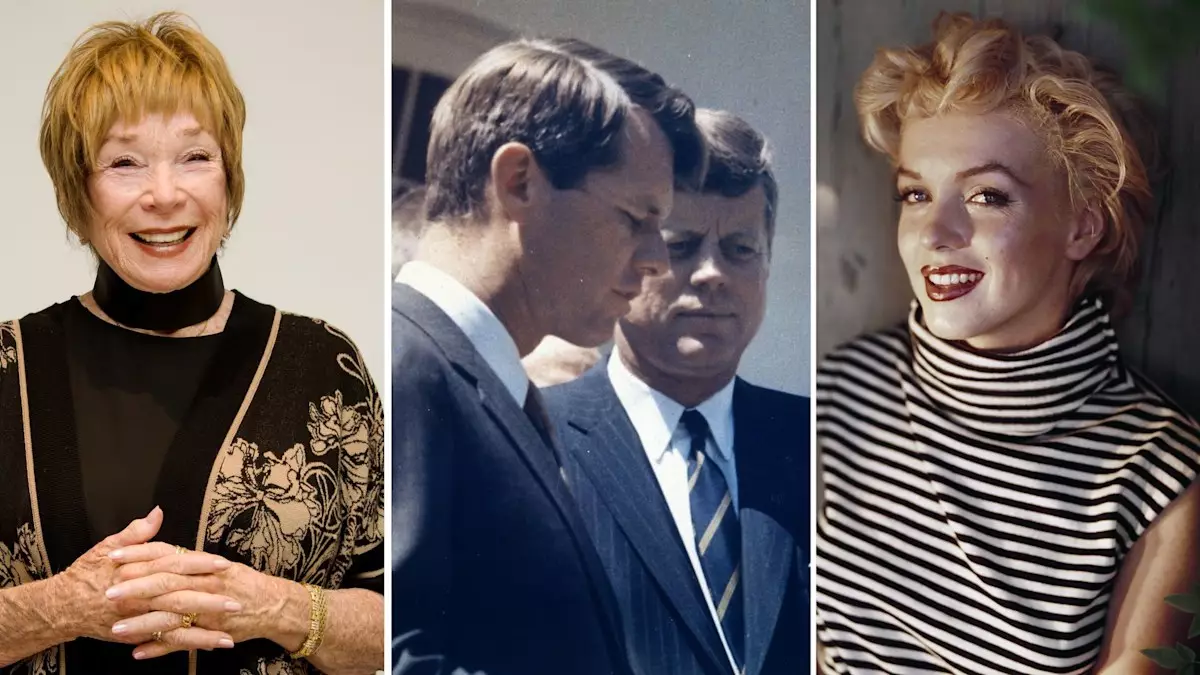The greater narrative surrounding the lives of iconic figures such as President John F. Kennedy and Hollywood starlet Marilyn Monroe often skims the surface of the intricate dynamics that linked them. With the recent revelations from actress Shirley MacLaine, a new layer of intrigue has been added to this storied relationship. MacLaine’s coffee table book, *The Wall of Life: Pictures and Stories from this Marvelous Lifetime*, divulges potentially scandalous details not only of Monroe and JFK’s connection but also of a liaison with his brother, Bobby Kennedy. This article delves into these claims and the broader implications they have on our understanding of these historic characters.
On a star-studded night in 1962, the famous 45th birthday celebration for JFK at Madison Square Garden was not just a typical political event; it became a symbol of the glamor and scandal that epitomized the era. Marilyn’s sultry rendition of “Happy Birthday” remains etched in the annals of American pop culture. However, it is the events that transpired after this iconic performance that have taken a new turn with MacLaine’s bold assertions.
According to MacLaine, her recollections portray a seductive backstage drama that transcended the fleeting nature of celebrity encounters. The actress claims to have been a witness to a series of events that could reshape the narrative surrounding both the Kennedys and Monroe. By illuminating how JFK and Bobby were connected to Monroe in such intimate ways, MacLaine’s account forces a reevaluation of the moral compass of a family that was not only politically influential but also embroiled in the scandals of personal relationships.
What makes MacLaine’s revelations particularly compelling is their illumination of the ambiguous nature of celebrity relationships in the 1960s. This was a time when the lines between politics and personal lives were blurred, and the public often found itself captivated by the romantic escapades of their leaders. The underlying assumption is that figures like JFK, who represented political authority and charisma, were simultaneously engaging in extramarital affairs—especially considering the intense media scrutiny they faced.
MacLaine’s assertion that she saw JFK exiting a bedroom—a space where his brother Bobby then entered—earmarks not just a potential love triangle but presents the idea that such entanglements were not treated with the seriousness one may expect from political leaders. The jovial manner in which Teddy Kennedy reportedly laughed off the story reveals a cavalier attitude toward personal indiscretions within the Kennedy family, reflecting a pervasive culture in which such actions were tolerated, if not expected.
Marilyn Monroe’s legacy has often been overshadowed by her complicated relationships with powerful men. These connections, including her alleged affairs with the Kennedys, have led to a broader discussion on the exploitation of women within the realms of power and fame. The tragic end to Monroe’s life merely three months after the height of her fame during the JFK birthday performance raises questions about the psychological impacts of such high-stakes relationships. Did the pressure of being associated with powerful men contribute to her untimely demise?
By sharing her own experiences and those of others, MacLaine adds depth to Monroe’s story, granting her a level of agency that has often been missing. The implication that Monroe was not merely a seductress, but rather a woman entangled in the complexities of political and personal relationships, challenges the stereotypical narrative surrounding her.
Shirley MacLaine’s revelations about Marilyn Monroe and the Kennedy brothers contribute significantly to the kaleidoscopic history of American celebrity. It serves as a potent reminder that behind the glamour, there often lie layers of intrigue, complexity, and tragedy. As we reflect on the relationships between these significant figures, one must contemplate the broader implications of celebrity culture, personal morality, and the consequences of fame, which, as illustrated by Monroe’s fate, often comes with a heavy price. MacLaine’s *The Wall of Life* presents not only her personal experiences but also a missing piece in the ongoing puzzle surrounding some of America’s most intriguing and tumultuous historical figures.

